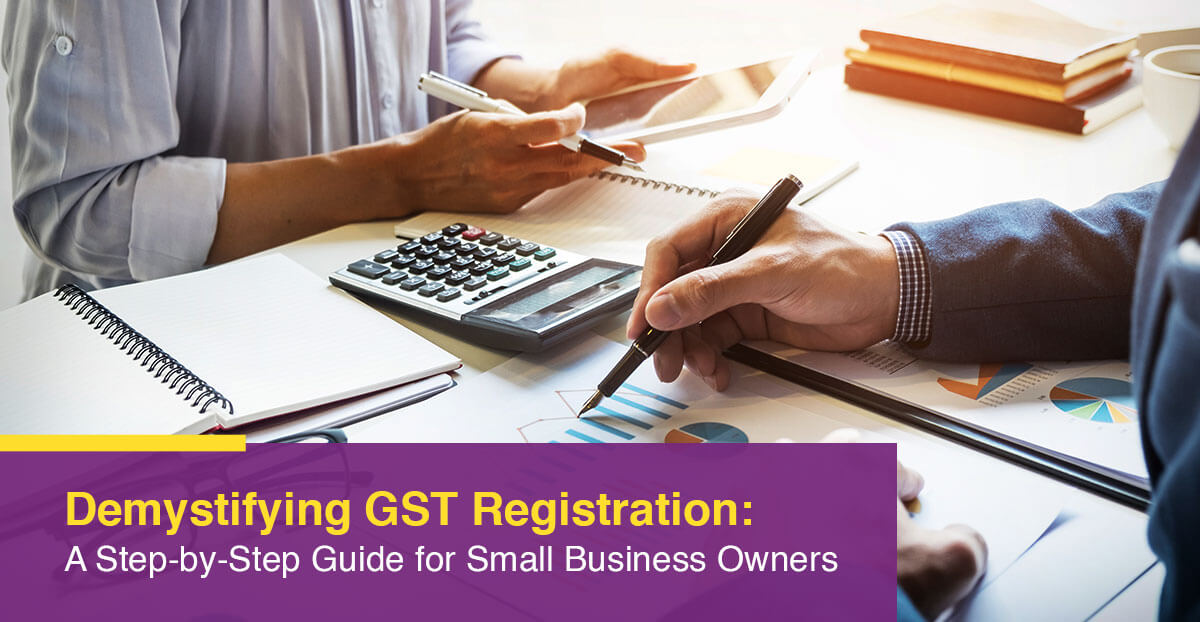
Demystifying GST Registration: A Step-by-Step Guide for Small Business Owners
Common challenges and concerns in GST registration for small businesses
- Introduction to GST Registration for Small Businesses:
Goods and Services Tax (GST) is a vital component of the tax system for businesses in India. Understanding and navigating the GST registration process can be complex for small businesses. This guide will simplify the basics of GST for small businesses, emphasise its significance, and guide you through the step-by-step registration procedure.
- Understanding the Basics of GST for Small Businesses:
Known as a consumption-based tax, GST replaces service taxes, excise duty, and all other taxes imposed on goods and services. It’s designed to simplify taxation and promote a unified tax structure. Small businesses, like larger ones, must comply with GST rules when their turnover crosses a certain threshold.